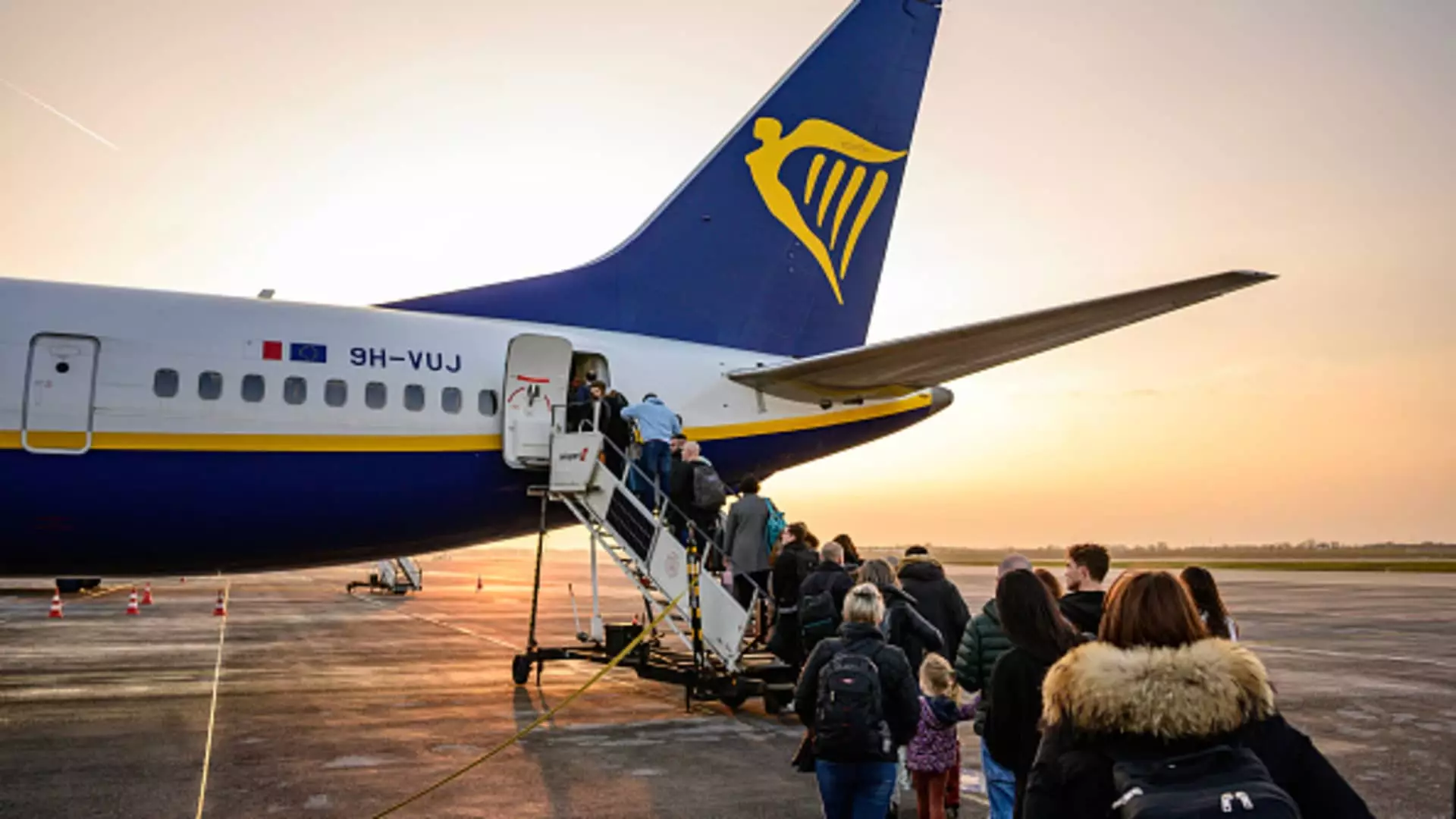Ryanair, the largest low-cost airline in Europe, has demonstrated remarkable resilience in navigating the turbulent aviation landscape. On Monday, the airline announced an impressive after-tax profit of 149 million euros ($155.8 million) for the fiscal third quarter, which concluded in December. This figure significantly surpasses the consensus forecast of 60 million euros from analysts, illustrating the company’s ability to generate positive financial outcomes even amid challenges. The unexpected surge in profits can largely be attributed to an increase in ticket fares driven by robust demand during the Christmas and New Year holiday season, where passenger traffic saw a commendable 9% increase, reaching 45 million travelers.
However, this success comes with a caveat—Boeing delivery delays. Ryanair has had to adjust its passenger traffic expectations for the fiscal year ending in March 2026. Originally set to welcome 215 million passengers, the target has been revised down to 206 million, reflecting a cautious stance against the backdrop of ongoing supply chain issues plaguing the aircraft manufacturer. The revised outlook is a strategic response to the reality of Boeing’s production scheduling, which has been further complicated by labor strikes and disruptions.
Operational Challenges and Strategic Decisions
The reduction in passenger traffic goals raises questions about Ryanair’s operational strategy moving forward. The airline has been historically known for its aggressive growth tactics and high aircraft utilization rates. However, the current challenges necessitate a more measured approach. Ryanair CFO Neil Sorahan has expressed optimism regarding future bookings, which remain robust, particularly for the summer season. Despite this positive sentiment, he acknowledges the impact of Boeing’s production struggles on the airline’s ambitions.
Sorahan’s recent visit to Boeing’s production facilities in Seattle offers an informed perspective on the situation. He noted significant improvements in supply chain operations—an encouraging sign for the low-cost carrier. Ryanair’s management must remain adaptable and continue to monitor these developments to mitigate the impact of delivery delays while ensuring operational efficiency.
In light of these adjustments, analysts at Citi have suggested that Ryanair’s revised capacity guidance could cause fluctuations in share prices. Yet, they also highlight a potentially supportive pricing environment due to industry-wide delivery issues. This dual perspective underscores the complexity of the current market and the importance of strategic pricing decisions as the airline maneuvers through these turbulent waters.
Future Profit Projections: A Cautious Outlook
Ryanair has adopted a cautious stance regarding its profit forecasts for the fiscal year ending on March 31, projecting a range between 1.55 billion euros and 1.61 billion euros. This guidance reflects a myriad of unpredictable factors, including ongoing geopolitical tensions, particularly concerning conflicts in Ukraine and the Middle East, as well as potential further disruptions in aircraft deliveries from Boeing.
The airline’s leadership remains attentive to external factors that could impact its financial health. The ongoing volatility in global markets, combined with fluctuating demand patterns influenced by the unfolding geopolitical landscape, imposes an element of uncertainty. However, Ryanair’s proactive adjustments to its forecasts indicate a level of preparedness to navigate these challenges effectively.
Ryanair’s recent financial performance showcases its immediate resilience as a leading low-cost airline. The augmented after-tax profit for the December quarter stands as a testament to the company’s operational strengths and customer demand. However, the decision to lower passenger traffic projections reflects a prudent acknowledgment of the challenges posed by Boeing’s delivery delays. As Ryanair navigates these turbulent waters, it is positioned to capitalize on its robust booking trends while remaining vigilant in adapting to an ever-changing landscape. The future holds potential, but continued adaptation and strategic foresight will be essential as Ryanair strives to maintain its industry position amidst the complexities of the aviation world.

